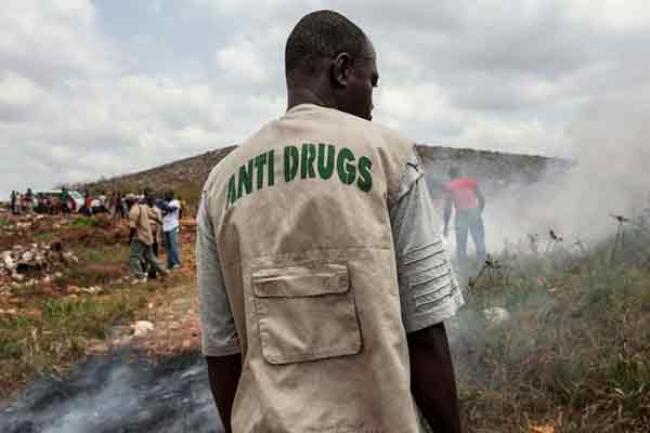Just Earth News 27 Jun 2016, 04:18 am Print

Staton Winter
“I call on countries and communities to continue to improve the lives of everyone blighted by drug abuse by integrating security and public safety with a heightened focus on health, human rights, and sustainable development,” said the UN chief in his message on the Day.
The illicit trade in drugs fosters transnational organized crime networks, systemic corruption and widespread violence. It is also a major public health menace. Millions of people are directly affected, especially the poor, vulnerable women and children, and those living in fragile communities.
At the special session of the UN General Assembly on the World Drug Problem, held in April, tangible progress was made in promoting alternatives to incarceration, fortifying human rights commitments, strengthening the focus on illicit financial proceeds, and tackling corruption.
The Sustainable Development Goals (SDGs) also informed the deliberations at the special session. Goal 3 calls on countries to strengthen the prevention and treatment of narcotic drug abuse, end AIDS and combat hepatitis. Goal 16 is designed to help to build peaceful, just and inclusive societies and institutions that can address illicit drugs, crime, corruption and terrorism.
This year, the Day is marked by the launch of the 'Listen First' initiative to increase support for prevention of drug use. Based on science, listening to children and youth is the first step to help them grow healthy and safe, and it is thus an effective investment in the well-being of children and youth, their families and their communities.
In 1987, the General Assembly decided to observe 26 June as the International Day as an expression of its determination to strengthen action and cooperation to achieve the goal of an international society free of drug abuse.
In another message to mark the Day, Yury Fedotov, the Executive Director of the UN Office on Drugs and Crime (UNODC), highlighted that the outcome document adopted at the General Assembly special session stresses a joint commitment to counter the world drug problem, which has helped “generate a global sense of purpose against this threat that menaces millions.”
The Executive Director said the document makes a number of concrete recommendations on the way forward, such as exploring alternative measures to conviction or punishment where appropriate; promoting international cooperation; the adoption of key international instruments on organized crime, corruption and terrorism; strengthening criminal justice systems, with a focus on drug prevention and treatment; including HIV and hepatitis; and upholding fundamental human rights.
For its part, UNODC's World Drug Report 2016 advances further understanding of the problem, the Executive Director said.
“In alarming detail the report shows a rise in the number of problem drug users from 27 to 29 million people aged 15-64; the disastrous resurgence of heroin in some regions; the use of the 'Darknet' for drug trafficking; the appalling loss of life due to overdoses, and the disproportionate impact illicit drugs have on women, among many others challenges,” Fedotov said.
“On Sunday also follows the landmark adoption last September of the 2030 development agenda. The special session gave us the tools and the commitment to fight illicit drugs; but in the 17 Goals we now have the architectural blueprint for appreciating how work against drugs, crime and corruption fits into the much wider work of sustainable development,” he added.
Fedotov noted that one of the key recommendations of this year's report is that achieving sustainable development and countering the world drug problem must not exist as “distant cousins.”
Illicit drugs threaten the security and health of people, while weakening both communities and institutions. If targets are to be achieved under Goal 3 on health, and Goal 16, on peaceful societies, as well as many other goals, drug-related development initiatives should be mainstreamed into general development efforts, he emphasized.
- US official reacts to Elon Musk's remarks backing India's permanent UNSC seat
- Sri Lanka: 6.2 magnitude earthquake hits Island Nation, no casualty
- UN chief hails SE Asia for vital role ‘building bridges of understanding’
- India-Uzbekistan Synergy at the SCO
- Kazakhstan to host Astana International Forum in June to address key global challenges






